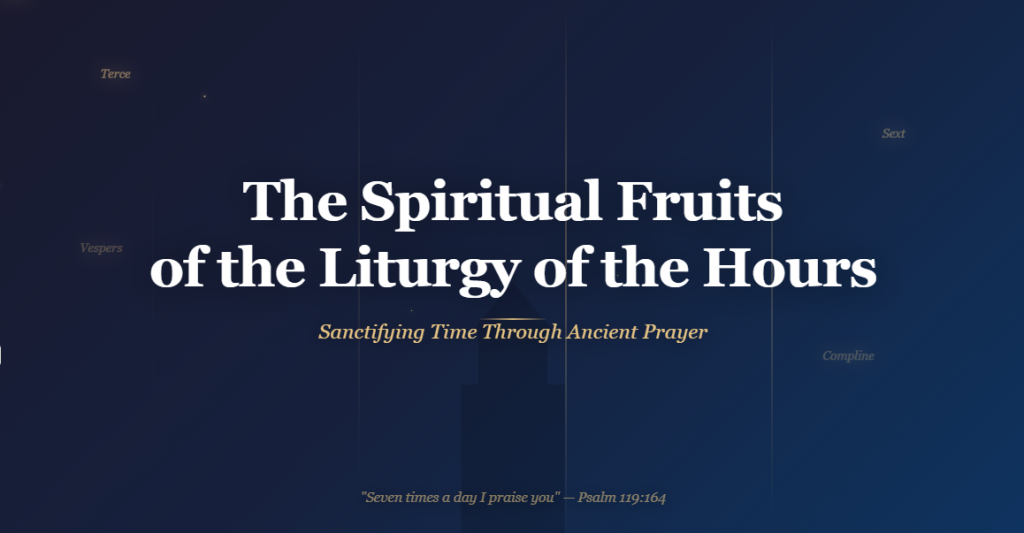We monks worked on this jig saw puzzle since late August, and for some reason, found it quite difficult. Teaches one patience and humility.

Around here, St. Peter is an indirect patron of potatoes, through his patronage St. Peter’s Abbey in Muenster, SK.
It is a fall-time tradition at St. Therese Institute to make a potato pilgrimage to St. Peter’s College and Benedictine Abbey in Muenster, SK, about 40 minutes west of Bruno, to help St. Peter’s people pick their prolific patch of potatoes.
We celebrated the annual “potato day” last Wednesday, at St. Therese Institute. As we do every year, the whole community joined in to pick and process the harvest. After the work, we enjoy a fresh french fry feast at the end of the day. That feast gives the day its unofficial name, which can result in confusion when it falls mid-week…

“Hey, it’s Fry-Day today!” I declared at our Wednesday morning team check-in.
“Ummm… It’s… Wednesday… not Friday” one of our Interns replied, in confusion. You could almost see a Processing – Please Wait… progress indicator bar moving behind her eyes as she mentally checked the calendar in her head before concluding I was obviously in need of more coffee.
“Exactly!” I replied emphatically. “That’s why it’s Fry-Day!”.
File corrupted… Unable to process… Reboot in progress… Logging in… “Oh, you mean THE fry day!!” she exclaimed, as the reference clicked into place.

Whether you called it Wednesday or Fry-Day, this year’s Potato Day came on an overcast but warm fall day. Our own St. Therese Institute potato patch failed this year due to beetles, but the St. Peter patch propagated plentifully. We are thankful for the bags of spuds and corn that the monks sent back with us, for our tables and our cellars.
The Fry Day supper we had this year after the work was done – fresh cut then fried potatoes (with optional cheese and gravy to poutine-ize the fries), fresh fire-roasted corn, and hotdogs out at the fire pit – was something to write home about! And, while it’s wonderful to have an abundance of locally-grown spuds in our cellar, packing the produce home isn’t the only purpose of this prairie potato portage.

Chatting with our Gap Year and Mission Year residents afterwards, I heard about the value of the experience for them. Some, like Jeff Vizeacoumar, have not had any prior gardening experience. They appreciated the chance to be involved in the food production process and to discover how amazing “fresh” can taste.
Jeff said, “Growing up in the city, I’m used to food just arriving from the grocery store. Today though, we got to pick the potatoes with our own hands, wash those potatoes, cut those potatoes, fry those same potatoes, and then eat them. I’ve never tasted fries so fresh and amazing! And it was great to be involved in the process all the way from picking to eating.”
After initially being disappointed at pulling up a plant to find very little yield, Élyse Raymond got really excited when she realized there was a trove of large tubers hidden deeper in the soil. Knowing Élyse, the find was probably marked by spontaneous jubilation. “I got excited about a lot of big potatoes!” she admitted. How often do we take people and situations at surface value, when rich discoveries could be unearthed if we just look deeper?

Other participants enjoyed meeting and working alongside the monks: hearing their stories over cookies; meeting one of our parish’s former pastors (Fr. Cosmos, who lives in a hermitage on the Abbey grounds); and getting to tour the Abbey itself.
Emma Skuban observed: “We spent the day serving others and working together. It was a real reminder that when you truly give, you never come away empty. I was also thinking how tending a garden connects us back to Adam and Eve, and how we are all called to be good stewards of the gifts we are given so that the harvest may be holy and bountiful.”
Kateri Godin reflected: “Potato Day was a good break from the talks and sessions we’ve had during orientation. It was good for us to do something physical and have time to chew on the things we’ve been learning in class. It was a reminder of how doing little things, like working with our hands, is important – it can actually save souls! And, digging deep into the earth reminded me of what we do in the St. Therese program: dig deep into ourselves and the faith.”

Regardless of what the events of the day are called, all agreed they were excellent this year. The only negative reports concerned the over-stuffed tummies many had to endure that evening (myself included: but that last jalapeño-dill batch was sooo goooood!).
Thank you to St. Peter’s Abbey for asking us to participate in the potato pick, for the opportunity to visit, and for the gift of potatoes and corn. Thank you as well to the Bruno Lions Club for the use of your deep fryers. And most of all, thanks be to God for all the blessings he bestows, tater-shaped or otherwise.
By Geoff Bennetto

For centuries, monasteries have marked the rhythm of each day with the sound of bells calling the faithful to prayer. This ancient practice—the Liturgy of the Hours, or Divine Office—isn’t merely a monastic custom but a profound spiritual discipline available to all Christians. When we enter into this sacred rhythm, we discover fruits that transform not just our prayer life, but our entire relationship with God and the world around us.
The Liturgy of the Hours does something remarkable: it consecrates time. Rather than seeing our days as a secular march from morning to night, this practice teaches us to perceive time as God’s gift, punctuated by moments of return to Him. When we pray Morning Prayer at dawn and Evening Prayer at dusk, we’re not simply checking off religious obligations—we’re learning to see our entire day as an offering.
This sanctification of time bears a particular fruit: we begin to live more consciously in God’s presence. The businessman praying midday prayer at his desk, the mother whispering Compline after putting children to bed—each discovers that God isn’t confined to Sunday mornings but intimately present in every hour.
One of the most beautiful fruits of the Liturgy of the Hours is the experience of unity with the universal Church. When you pray the psalms at Morning Prayer, you join your voice with countless others—priests in remote parishes, contemplative nuns behind cloister walls, laypeople in cities around the world. You’re praying the same psalms, the same readings, united across geography and culture.
This corporate prayer shatters our individualistic approach to spirituality. We discover that prayer isn’t primarily about our personal feelings or needs, but about joining the perpetual worship that the Church offers to God. Even when we pray alone, we’re never truly alone.
The psalms form the heart of the Liturgy of the Hours, and through regular praying of the entire psalter, something profound happens to our souls. We begin to pray with the full range of human emotion—joy and sorrow, praise and lament, confidence and confusion. The psalms give us words when we have none; they teach us to be honest before God.
Over time, the psalms shape our interior landscape. Their imagery—of refuge and rock, shepherd and fortress—becomes the language of our relationship with God. We discover that our ancestors in faith wrestled with the same doubts, celebrated the same victories, and cried out from the same depths. The psalms form us into people who can hold both suffering and hope, both penitence and praise.
Beyond the psalms, the Liturgy of the Hours weaves together readings from both Old and New Testaments, patristic writings, and lives of the saints. This daily immersion in Scripture and tradition creates a fruit that might be called “biblical consciousness.” The stories, prophecies, and teachings of Scripture begin to inform how we see everything.
The office of readings, in particular, offers extended time with Scripture and the Church Fathers. Here we’re not looking for quick inspiration or practical application, but dwelling in the text, allowing it to dwell in us. This contemplative approach to Scripture bears fruit in unexpected moments—suddenly a psalm verse illuminates a difficulty, or a Gospel passage reshapes how we understand a relationship.
There’s an apparent paradox in the Liturgy of the Hours: it’s highly structured, yet it cultivates profound interior freedom. The fixed prayers and readings provide a framework that actually liberates us from the tyranny of our moods and feelings. On days when prayer feels dry, we have the psalms to pray. When we’re overwhelmed, we have set times that anchor us.
This discipline bears the fruit of perseverance. We learn that the spiritual life isn’t sustained by emotional highs but by faithful return, day after day, to the wellspring of prayer. Gradually, this faithfulness in prayer strengthens our faithfulness in other areas—in relationships, in work, in responding to God’s call in our lives.
Perhaps the deepest fruit of the Liturgy of the Hours is its capacity to unite us with Christ’s own prayer. Jesus Himself prayed the psalms and observed the Jewish hours of prayer. When we pray the Divine Office, we’re not just praying to Christ but praying with and in Him.
This creates an intimacy that transcends technique or method. We begin to experience prayer less as our effort to reach God and more as participation in Christ’s eternal dialogue with the Father. The fruit of this is transformative: we discover that we’re being drawn into the very life of the Trinity.
The Liturgy of the Hours also teaches us a healthier relationship between activity and contemplation, work and rest. In a culture that glorifies busyness, the practice of stopping for prayer multiple times a day is countercultural. It declares that productivity isn’t ultimate, that we’re human beings, not human doings.
This rhythm bears fruit in the rest of our lives. We learn to work with greater focus because we know rest is coming. We approach rest without guilt because it’s been consecrated as time with God. The ancient Benedictine motto “ora et labora”—pray and work—becomes not just a monastic ideal but a lived reality.
The regular practice of the Liturgy of the Hours cultivates virtues almost imperceptibly. Humility grows as we acknowledge our need to return to God throughout the day. Patience develops as we persist through dry seasons. Gratitude flourishes through the repeated canticles of praise. Hope strengthens as we encounter again and again the promises of God in Scripture.
These virtues aren’t earned through the hours themselves—that would be a works-based spirituality. Rather, they’re fruits of the Holy Spirit working through our faithful return to prayer, shaping us gradually into the image of Christ.
Finally, the Liturgy of the Hours offers a foretaste of eternal worship. In the book of Revelation, we see that heaven is characterized by perpetual praise. When we join the Church’s daily prayer, we’re rehearsing for eternity, learning now the songs we’ll sing forever.
This eschatological dimension bears a fruit that might be called “holy longing”—not a dissatisfaction with life but a deepening awareness that we’re made for more than this world offers. We begin to live between the “already” and the “not yet,” grounded in earth but oriented toward heaven.
The fruits of the Liturgy of the Hours don’t appear overnight. Like any spiritual practice, it requires patient cultivation. Start simply—perhaps with Morning and Evening Prayer. Use a guide or app if needed. Don’t be discouraged by initial awkwardness or distraction; these are normal.
What matters is return. Day after day, hour after hour, we return to this ancient river of prayer. And as we do, we discover that the Liturgy of the Hours isn’t a burden added to our lives but a gift that makes sense of everything else—transforming our days, our prayers, and ultimately, our very selves.
The bells are always ringing, calling us to prayer. All we need to do is answer.